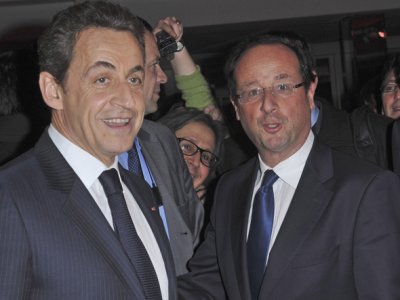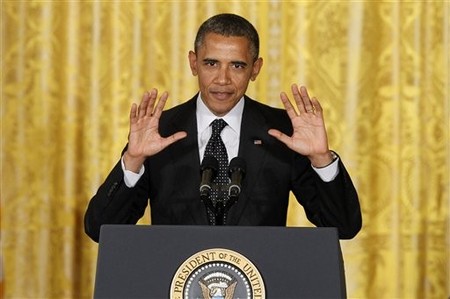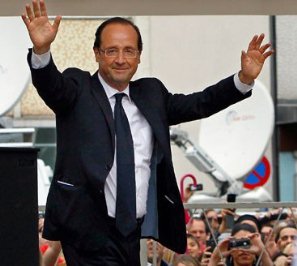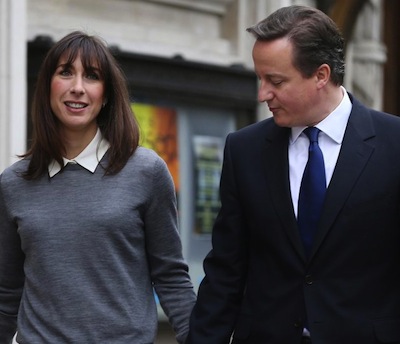
For the past few years, the world has watched with bated breath as Europe has suffered from the slings and arrows of the ongoing Eurozone crisis. Anxious markets caused borrowing costs to soar in debt-stricken countries and austerity measures caused riots - but, so far, imminent catastrophe has always been staved off by last-minute deals.
But, as Time reports, the EU must now face its biggest obstacle: democracy.
On May 6, Greek and French voters will go to the polls. Because of France's central role in European policymaking, the French election may be of greater consequence. French voters will be forced to choose between the embattled incumbent President Nicolas Sarkozy and challenger Francois Hollande. Currently, Mr. Hollande (of the center-left Socialist Party) leads Mr. Sarkozy (of the center-right UMP Party) by around six to 10 points.
That might not be good news for the Eurozone. Michael Sivy in Time writes:
Hollande is not opposed to the euro in principle. But he rejects austerity policies and calls for a greater emphasis on growth. Further, to the extent he has to reduce the budget deficit, he favors tax increases over spending cuts. In short, Hollande’s efforts to save the euro will probably be halfhearted. Sarkozy’s replacement by Hollande would therefore likely weaken the German-French axis, undermining confidence in European financial markets and leading to a general loss of direction in the euro zone.
Germany's Chancellor Angela Merkel - who obstinately insists on budget discipline - has already publicly clashed with Mr. Hollande over a recent fiscal compact agreed to by most members of the EU. While Mr. Hollande raises a good point about implementing more pro-growth policies, publicly clashing with Ms. Merkel portends a rocky future for the EU.
Still, fiscal discipline is important, but it does not appear to rank high on Mr. Hollande's domestic wish-list. Instead, Mr. Hollande has threatened to implement a marginal income tax rate of 75 percent - potentially scaring away wealthy citizens - and he wants to roll back Sarkozy's pension reform which raised the retirement age from 60 to 62.
Recently, The Economist warned in an editorial titled "The Rather Dangerous Monsieur Hollande" that he would be "bad for his country and Europe." It went on:
[I]f we had a vote on May 6th, we would give it to Mr Sarkozy—but not on his merits, so much as to keep out Mr Hollande.
But, Patrick Smith, writing in the Fiscal Times, applauds Mr. Hollande's rejection of austerity. Instead, he believes that, "Europe has needed this kind of debate from the first."
The French decision on May 6 will have repercussions far beyond their own borders. Let us hope they make a wise one.
(AP Photo. Mr. Sarkozy (left) faces off against Mr. Hollande (right) on May 6.)








